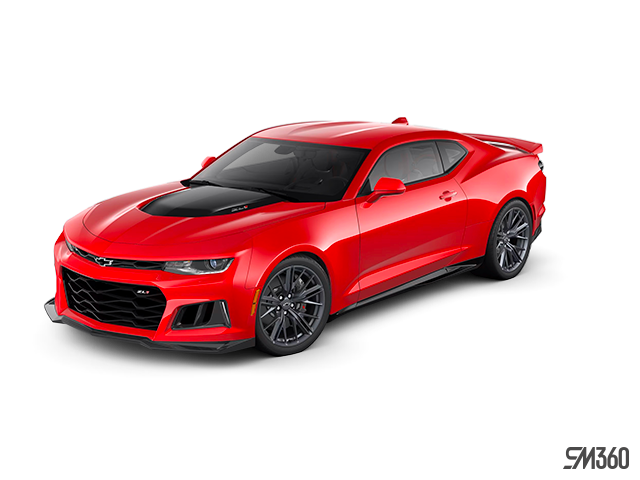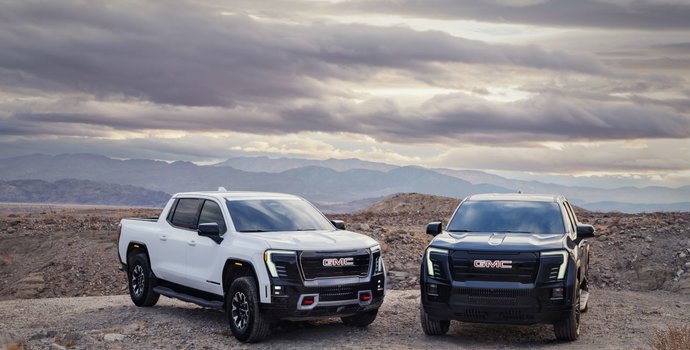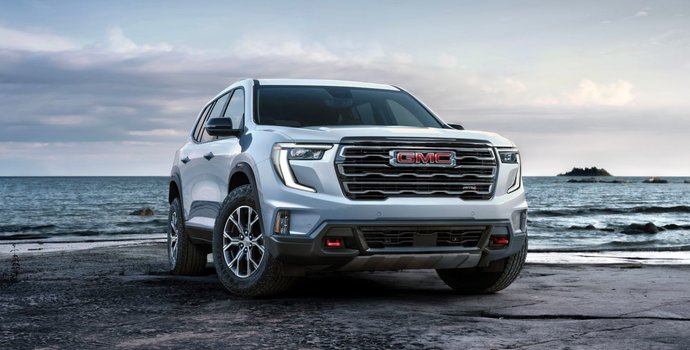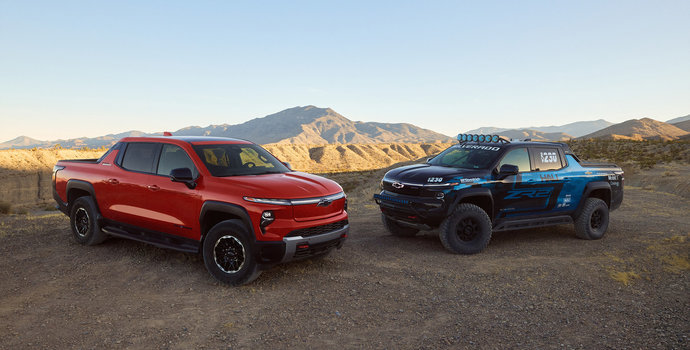Trailering is a weighty subject. When done incorrectly, it can cause plenty of headaches and accidents; but when done properly, it opens up all sorts of new possibilities for work and leisure. So whether pulling a load of construction supplies, making a big move, or towing your boat to one of the many marinas around the Ontario lake region, be informed of just what your GMC or Chevrolet vehicle is capable.
Consider Truck Body Configuration and Cab Length
So many factors to weigh, and we’re not just talking cargo and trailers here, folks! Before you even think about loading up your potential truck, you must consider:
- How many passengers you intend to transport
- The type of trailer you’ll be towing (ball hitch trailer and/or fifth-wheel)
- The length and breadth of your cargo
With that in mind, Chevrolet and GMC has a complete line up of truck box length, frame strength and cab configurations to suit your needs:
- 1500 Regular cab standard box
- 1500, 2500HD and 3500HD Regular cab long box
- 1500 Double cab standard box
- 1500 Crew cab short box
- 1500, 2500HD and 3500HD Crew cab standard box
- 2500HD and 3500HD Crew cab long box
One final pointer to keep in mind is your cab to axel trailer requirements. Since fifth-wheel trailers tend to have a longer “swing radius” when turning, a long box Chevrolet or GMC truck with greater back-of-cab space may be needed to turn safely. As with any of these details, please consult an Applewood Chevrolet sales agent for further queries.
What is GVWR?
Ever noticed this acronym on the side of large semi trucks on the highway? GVWR stands for Gross Vehicle Weight Rating. It is the total weight that your truck can pull and carry. It is the sum of your vehicle’s total potential Curb Weight and its Payload Weight.
Thus, in order to calculate how much weight your truck can haul (Payload Weight), subtract your GVWR from its Curb Weight. All this information can be found within your GM vehicle’s Owner’s Manual or by contacting our sales or service departments.
Warning: Overloading your truck to exceed its payload capacity can seriously damage your truck and endanger your passengers and other drivers on the road. Additionally, 3rd party modifications done to your truck to “beef up” its suspension, wheels, and tires, will not increase its Payload Capacity because your truck’s chassis is rated to handle very specific weight and energy forces.
Know Your Vehicle Payload Before You Tow
GMC and Chevrolet pickups are the ideal partner for tackling your biggest hauling projects. But to safely tow or haul your cargo, it’s vital to know your truck’s payload weight to assess how much your truck can carry before you hook up a trailer.
Your Payload Weight is the sum of:
- Your passengers’ weight
- Your cargo weight
- The weight of all your extra options and accessories like roof rack, snowplough, toolbox, etc.
- And your Tongue Weight or Kingpin Weight
(Tongue Weight is the mass of your trailer on the hitch ball of your vehicle. It is estimated to be around 10-15% of your trailer’s total weight fully loaded. Kingpin Weight is the weight of a fifth-wheel style trailer hitched to your truck’s bed. This is calculated to be between 15-25% of your fully loaded fifth-wheel trailer plus 68 kg to account for the fifth-wheel hitch assembly.)
2-Wheel Drive Or 4-Wheel Drive?
These terms refer to which wheels are delivering power to the ground in your GM vehicle. In GM truck and full-size SUV (Chevrolet Tahoe and GMC Yukon) configurations, your options are 2-wheel drive (rear wheels) and 4-wheel drive.
Advantages of Rear-Wheel Drive
- Lower purchase price
- Lower Curb Weight (the truck itself weighs less, so with the same GVWR it can carry more payload)
- Lower maintenance costs (fewer powertrain parts)
- Lower fuel consumption
Advantages of 4-Wheel Drive
- Greater off road ability
- Greater traction in slippery, muddy, and snowy conditions (for example, pulling a boat out of a lake on a slippery loading ramp)
Gasoline or Diesel Engine?
Truck drivers are notoriously particular about what equipment is installed on their vehicle, as they should be! Your truck is your transportation, livelihood, and carrier of your hard-earned investments. And the engine you choose is at the heart of how much and what you can pull. These are the factors you can consider before you buy a Chevrolet or GMC pickup truck:
Gasoline Advantages
- Lower initial cost
- More engine choices
- Weighs less, more Payload
- Easier cold starts
- Better fuel distribution network
- Lower maintenance costs (oil, filters and tune ups)
- Repair costs are generally less
Diesel Advantages
- Burns less fuel
- Engines last longer
- Safety: diesel fuel not as flammable
- May get more at trade-in due to the up-front premium paid for this engine option
- Turbocharging results in very little power loss at high altitudes
See our New Vehicle Inventory Build & Price to find the gasoline or diesel engine pick up that fits your budget, towing capacity, and payload capacity, today!
Safe Trailering Features
Trailer Brakes: If your trailer weighs more than 454 kg, then it must have its own onboard brakes to augment your truck’s stopping system. Ensure that your brake controller is also connected and functioning properly.
Hitches: We recommend that all truck hitches are mounted directly to the frame and designed for proper weight distribution to guard against jack-knifing (swerving truck and trailer while moving) and swaying. The Applewood Chevrolet GMC Service Department is the leader in trailer servicing and installation. Our certified technicians can install a GM Canada approved hitch that fits your towing requirements and answer any questions you may have concerning towing safety.
GM Tow/Haul Mode: All GM full-sized trucks, vans, and SUVs equipped with automatic transmissions have a Tow/Haul mode. It can be found on the end of your gearshift lever (or on the dash of Express/Savana vans). Tow/Haul Mode reduces the frequency of shifts, lengthens shift intervals, and stays in lower gears longer to reduce the transmission wear and tear and improve vehicle control at speed when towing or hauling significant loads.
Hill Hold Assist: To keep you from rolling backwards while on a steep slope (particularly important when carrying a trailer), the standard hill hold feature on Chevrolet and GMC trucks keeps pressure on the brakes (for 1.5 seconds) when you move off the brake pedal and press the accelerator.
Tow the Line
Find out how much you can pull in your GM truck or SUV. Use our online trailer towing tool shown above to calculate the capabilities of your make and model.







